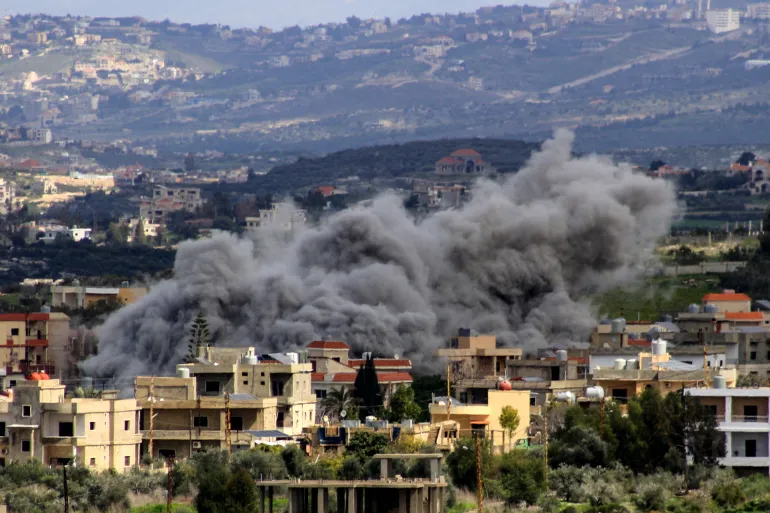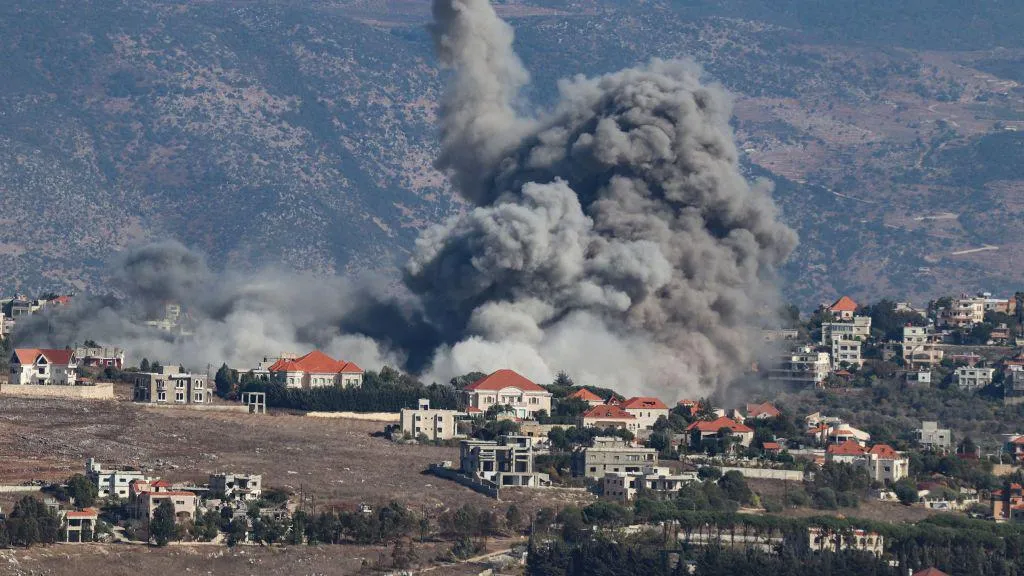
Despite calls from the US and other allies for a ceasefire, Israeli Prime Minister Benjamin Netanyahu has instructed the country’s military to keep fighting “full force” against Hezbollah. Lebanon’s health ministry reported at least 92 casualties from Israeli air strikes on Thursday, adding to the hundreds killed since the escalation began on Monday.
Hezbollah confirmed the death of Mohammad Surur, head of its drone unit, in an airstrike on a Beirut apartment building. Tensions are high as fears of a full-scale war between Israel and Hezbollah grow due to the increased Israeli strikes on Lebanon this week.
The rise in conflicts led a group of 12 nations, which includes the US, UK, and EU, to suggest a three-week truce between Israel and Hezbollah on Wednesday.
The proposal initially sparked hope when Israeli ambassador to the UN, Danny Danon, expressed openness to the idea. However, Israeli politicians firmly rejected the proposal by Thursday. Upon arriving in New York for the UN General Assembly, Mr. Netanyahu stated that Israel would persist in Lebanon until achieving all its objectives, notably the safe return of northern residents to their homes. Contrary to Mr. Netanyahu’s statement, the White House later indicated that the ceasefire proposal had been “coordinated” with Israel, despite Israel’s decision to continue its military actions.
Mr. Netanyahu’s office issued a statement early on Friday to address the “misreporting around the US-led ceasefire initiative.” The statement clarified that the United States had informed Israel about its plan to propose a ceasefire in Lebanon with international and regional partners. Israel supports the initiative’s goal of ensuring the safe return of people along its northern border and appreciates the US’s efforts. Discussions will continue in the coming days. Meanwhile, UK Prime Minister Sir Keir Starmer, speaking in New York, urged an “immediate ceasefire” to create room for a diplomatic resolution to the Lebanese conflict.
He expressed concerns that the conflict could escalate into a war “beyond anyone’s control.” Approximately 70,000 Israelis have been displaced from northern Israel since the tensions between Israel and Hezbollah, which originated from the Gaza war, began almost a year ago. In Lebanon, about 90,000 individuals have been displaced since Monday, in addition to the 110,000 who were already displaced, according to the UN. The Israeli military reported targeting Hezbollah sites in southern Lebanon and the Bekaa Valley in the east of the country through Thursday. They also attacked infrastructure on the Lebanese-Syrian border to disrupt weapons supplies to the group. Meanwhile, Hezbollah claimed to have launched 50 rockets at Kiryat Ata and 80 missiles at Safed, both in northern Israel. The Israeli army stated it intercepted a missile from Yemen following sirens and explosions.

Lt Gen Herzi Halevi of Israel’s military mentioned on Wednesday that Israeli airstrikes in Lebanon might lead to the IDF potentially entering enemy territory. Maj Gen Tomer Bar, the Commander of the Israeli Air Force (IAF), advised troops on Thursday to be ready to support a potential ground operation into Lebanon.
Qatar has also joined the calls for de-escalation, with government spokesman Majed al-Ansari expressing concerns about reports from Lebanon of attacks on entire families, reminiscent of the tragedies in Gaza. US Defense Secretary Lloyd Austin, after discussions in London, highlighted the risk of “an all-out war” between Israel and Hezbollah but emphasized that a diplomatic solution remains feasible. Austin stressed that Israel aims to bring its citizens back home in the north, advocating for a diplomatic approach as the most efficient way to achieve this goal.
On Thursday, Israel’s defense ministry (IMoD) announced securing an $8.7 billion US aid package to support ongoing military operations. The aid includes funds for essential wartime procurement and air defense systems like the Iron Dome, David’s Sling, and an advanced laser system.


